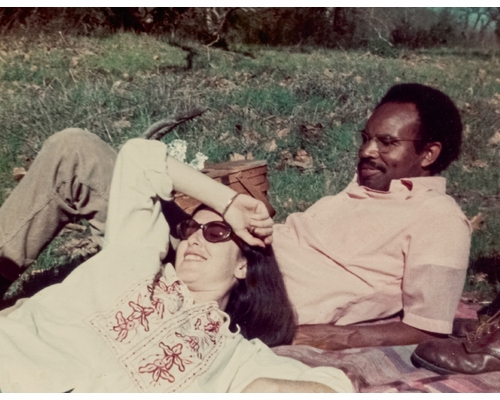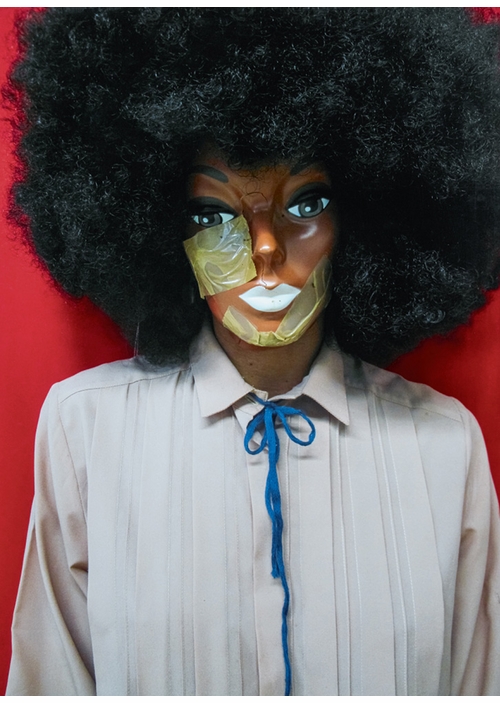| |||||||||||||||||||||||||
ARTBOOK BLOGEventsStore NewsMuseum Stores of the MonthNew Title ReleasesStaff PicksImage GalleryBooks in the MediaExcerpts & EssaysArtbook InterviewsEx LibrisAt First SightThe Artbook | D.A.P. 2025 Gift GuidesArtbook Featured Image ArchiveArtbook D.A.P. Events ArchiveDATE 12/11/2025 192 Books presents Raymond Foye and Peter Gizzi on The Song Cave's new edition of John Wiener’s 'Behind the State Capitol: Or Cincinnati Pike'DATE 12/8/2025 Pure winter glamour in ‘It’s Snowing!’DATE 12/3/2025 Flamboyant poses and melodramatic airs in 'Cecil Beaton's Fashionable World'DATE 11/30/2025 Artbook at Hauser & Wirth Los Angeles Bookstore presents Kelli Anderson and Claire L. Evans launching 'Alphabet in Motion'DATE 11/27/2025 Indigenous presence in 'Wendy Red Star: Her Dreams Are True'DATE 11/24/2025 Holiday Gift Guide 2025: Artful Crowd-PleasersDATE 11/22/2025 From 'Bottle Rocket' to 'The Phoenician Scheme' — the archives of Wes AndersonDATE 11/20/2025 The testimonial art of Reverend Joyce McDonaldDATE 11/18/2025 A profound document of art, love and friendship in ‘Paul Thek and Peter Hujar: Stay away from nothing’DATE 11/17/2025 The Strand presents Kelli Anderson + Giorgia Lupi launching 'Alphabet in Motion'DATE 11/15/2025 Holiday Gift Guide 2025: Stuff that StockingDATE 11/15/2025 Artbook at MoMA PS1 presents Cory Arcangel, Eivind Røssaak and Alexander R. Galloway launching 'The Cory Arcangel Hack'DATE 11/14/2025 Columbia GSAPP presents 'The Library is Open 23: Archigram Facsimile' with Beatriz Colomina Thomas Evans, Amelyn Ng, David Grahame Shane, Bernard Tschumi & Bart-Jan Polman | BOOKS IN THE MEDIACORY REYNOLDS | DATE 1/18/2021On Martin Luther King Day, the story behind 'Young, Gifted and Black'How did the message of Dr. Martin Luther King, Jr. influence Bernard Lumpkin, whose collection forms the basis of the best-selling survey, Young, Gifted and Black: A New Generation of Artists? The story goes back to Bernard's father, Oscar James Lumpkin Jr., pictured here with Bernard's mother, Sarah Benzaquen. Below is an excerpt from Bernard's Introduction. Sarah Benzaquen Lumpkin and Oscar James Lumpkin Jr., California, 1976, from Young, Gifted and Black. EXCERPT FROM THE INTRODUCTION A FAMILY COLLECTION By Bernard I. Lumpkin Though this book borrows its title from Nina Simone and Lorraine Hansberry, my first sense of what it means to be young, gifted, and black came from my father. A physicist, educator, and triathlete, he was a true renaissance man whose drive and talents carried him far from his modest beginnings. Oscar James Lumpkin Jr., the eldest of eight children, was born in 1937 in the then predominantly black Watts neighborhood of Los Angeles. At Cathedral High School, he ran track, won awards in math and journalism, and graduated as the salutatorian of the class of 1955. But science was his true passion—and his salvation. As a teenager, his parents couldn’t afford to buy him a telescope so he fabricated one from scratch, pointed it at the stars, and charted his future. After high school, my father enrolled at St. Mary’s College of California, where, in 1959, he graduated with a BS magna cum laude in physics and won a scholarship to attend Columbia University—becoming one of the school’s few African American PhD students in physics. At Columbia, my father met his intellectual soul mate and the love of his life, my mother, Sarah Benzaquen, who was pursuing a PhD in French literature. They were an unlikely pair: a Sephardic Jew from Tangiers, Morocco, and a black math and science whiz from Watts. But they shared a love of French language and culture and were married on New Year’s Eve, 1965. Following my father’s graduation in 1966, they spent time in Paris during his postdoctoral fellowship. (They lived on the rue des Bernardins, the street for which I am named.) And they might have stayed in Paris, but after the 1968 assassination of Dr. Martin Luther King Jr. my father felt compelled to return to his country and his people. As a black scientist and educator, he had a role to play in the civil rights movement. In the early 1970s, he led the fight to establish the first open-admissions program at City College of New York, which guaranteed every New York City high-school student a college education. It was the first of many such struggles for equity and inclusion in higher education that defined my father’s life and shaped his professional career, which included stints at IBM, Yale and Moscow University, along with the decades-long post he held in the physics department at the University of California, San Diego. Not long after retiring from academia, my father was diagnosed with cancer. We spent his last months together. During this time, he shared with me many stories from his life: growing up in Watts, embracing the social and political ferment of 1960s New York, and discovering what it means to be a black American while living in Europe. He also talked about his parents and their roots. At times funny, sad, or serious, these stories had a profound impact on me, and they helped me better understand my own place and purpose in the world.  Narcissister, "Untitled" (2012), from Young, Gifted and Black. After my father died in 2009, I took a fresh, hard look at the contemporary art collection that my husband, Carmine, and I had started some years earlier after we first started living together in New York. Mindful of my father’s legacy, I turned my attention to artists of African descent. Thanks to these artists, several of whom had become my friends, I could continue the same conversations I had been having with my father about race, family and history. Around this time, my sister’s own career as an artist investigating race, gender, and eroticism took an exciting turn. Donning a signature mask and portraying various costumed characters, she began performing as Narcissister—a persona that upends conventions of womanhood while interrogating our assumptions about self and other, male and female, black and white. So thanks to my artist-friends, and my sister, I realized that the art collection could be a way for me to continue learning about the issues that mattered most to me. My hope is that my own children—Lucy, Felix and Zachary—can participate in this educational process as well. Because by living with the work of these artists, they too will better understand their roots…"  Young, Gifted and Black: A New Generation of ArtistsD.A.P. $49.95 free shipping |